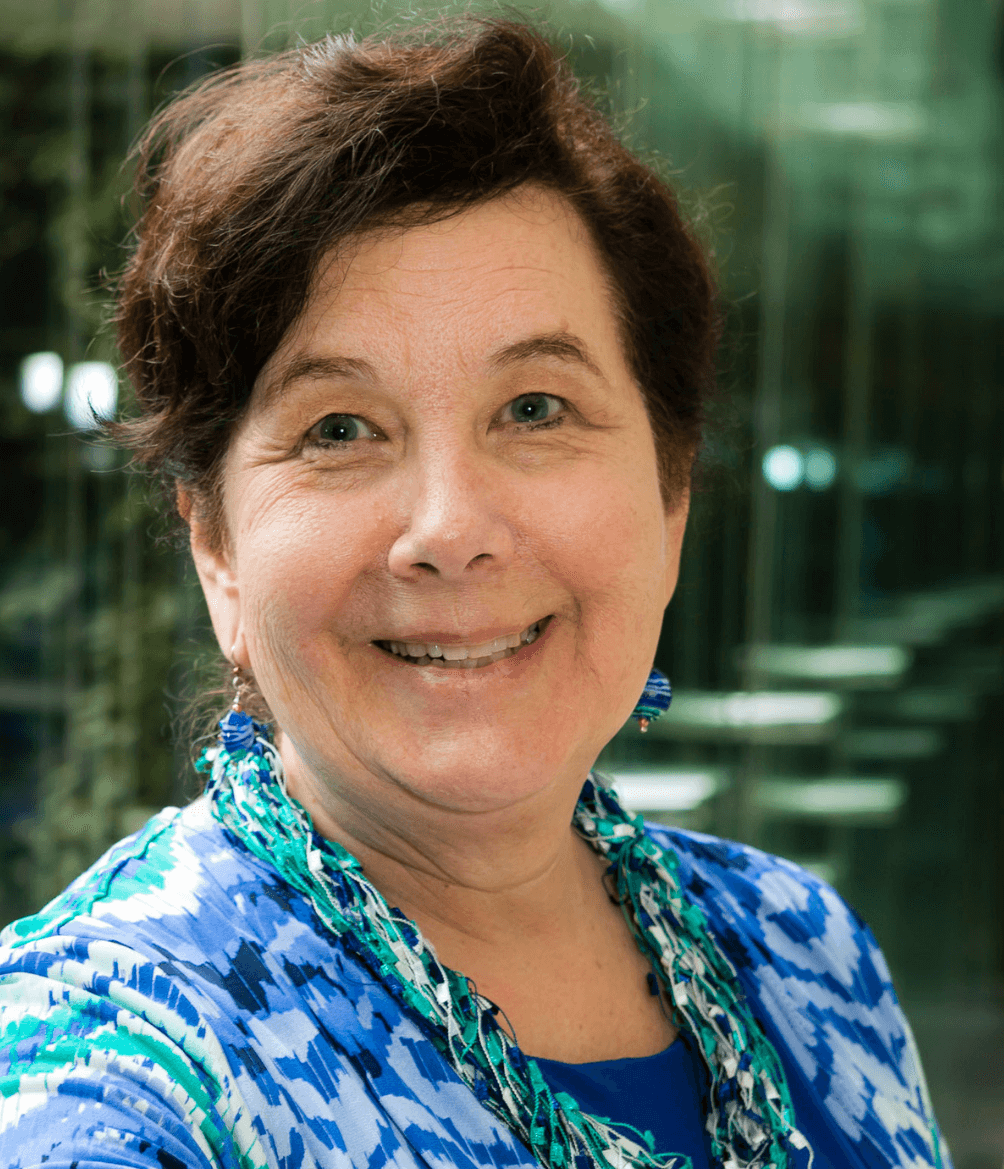Foundations of Functional Medicine – New Training Program by Mindd Health
Mindd Foundation


In the first talk in our series for FxMed4Kids – learn all about the Foundations of Functional Medicine with Dr Elizabeth Mumper, Integrative Paediatrician from the US.
And stay tuned because there are four more modules to come in this series including:
- Module 2: The Gastrointestinal System
- Module 3: The Immune System
- Module 4: The Metabolic System
- Module 5: The Nervous System
What is Functional Medicine?
Functional Medicine is a new way for practitioners and patients to interact so the best outcome can be achieved for the patients’ health. As Dr Mumper explains: “Functional Medicine is not your 10-minute doctor visit.” It is much more about looking at the complexity of the body and how all the various networks work together, she explains.
Once a parent or patient understands the foundations of Functional Medicine, they’re empowered to manage their health and that of loved ones by making the right lifestyle and treatment choices – including working with a Functional practitioner.
With over 50% of adults and children struggling with an epidemic in chronic illness, Functional Medicine provides great hope for treatment as well as prevention of ADHD, anxiety, allergies, asthma, chronic fatigue syndrome, depression, digestive disorders, neuro-degenerative and neuro-developmental disorders plus a wide range of auto-immune disease.
Key Points of Functional Medicine:
- Practitioners give patients intake forms which can be 10 to 20 pages long so they can get the right information about the patient’s history and other factors.
- This information is gathered on a timeline for each patient.
- The information is then placed on a matrix to look for connections.
- A popular model used is the ‘Too much, not enough’ model where the practitioner finds out what is the patient getting too much of, that is doing them harm – and what are they not getting that they need.
- An overall strategy is devised for the patient by the practitioner incorporating many factors.
- The practitioner takes the time to tell the story back to the patient or the carers so a partnership is formed.
Why do we need Functional Medicine?
Environmental factors seem to be driving chronic illness. For example, in the US there’s evidence of a high increase in autism. In 2018 it was one in 59 children and now it’s one in 50. As Dr Mumper says: “Clearly you cannot have a genetic epidemic in a period of 30 years. Our genes just do not mutate or change that fast. So, some environmental factors have to be involved in what I see is a real epidemic.”
Dr Mumper adds asthma and atopic diseases are also rising. Peanut allergy around the world has been increasing dramatically since the second world war. As well, obesity is a huge issue and the United States leads the world.
“In my State of Virginia, actually 30% of children are now overweight or obese and I’m very concerned about this because one of the problems with obesity is that it is a pro-inflammatory state and this means that if you are obese, you are constantly driving a state of low-grade inflammation in your body, which is going to make you much more likely to have problems as other illnesses come your way. So, this is a worldwide problem,” says Dr Mumper.
“In Canada, childhood diabetes is increasing dramatically. Over time we’re starting to see more and more so-called type 2 diabetes which used to be called adult-onset diabetes. Now there are children who are 8, 9, 10 years old that have so called adult-onset diabetes,” she adds.
How can Functional Medicine help with increases in chronic illness?
Dr Mumper says these increases in chronic diseases could have some common denominators in terms of the underlying factors: “So, if we can identify some common genetic predispositions and some environmental exposures, we might find some of these reasons for increases in chronic diseases,” she adds.
“This is what’s really fun about functional medicine – you can do some basic strategic treatments which help a wide variety of conditions. We can harness our inherent move for homeostasis, which is the medical term for balance – in order to make our children healthier.”
The next steps…
Once a Functional Medicine practitioner has all the information gathered and curated, the next step is to look at the modifiable lifestyle factors which can be changed including sleep, exercise, nutrition, relationships and stress management.

Dr Liz Mumper
Integrative Paediatrician
Case Study: Child with Severe Autism
Dr Mumper gives us an example of a child she recently treated for severe autism. He was adopted at the age of five months by a family from the US.
The results showcase how Functional Medicine can routinely defy the odds of Conventional Medicine by addressing underlying causes which vary by individual.
Autism patient’s health history:
- Born in Korea, his biological mother was smoking a pack of cigarettes every three days and his parents were both Hepatitis B carriers.
- On the day he was born he was given the Hepatitis B vaccine.
- He was adopted at the age of five months by a family from the US.
- At two and six months and 12 months, he was given the usual vaccines
- He had intestinal permeability and was having 30 IG reactions to inflammatory foods.
- He had dysfunctional mitochondria and hyperacusis meaning he was very sensitive to sound.
- At 18 months he was diagnosed as having severe autism and the parents were advised he would need to be institutionalised.
Other factors in the patient’s case:
- Zinc was used as a supplement because it links the gut junctions together.
- An anti-inflammatory diet was used including nutrient dense foods from nature that are very strongly coloured so he ate food of multiple colours.
- He was given Enhansa which is a form of curcumin. It’s great with any yeast and it’s an overall immune enhancer.
- He was treated for yeast with Nystatin which is an antifungal. It’s not systemically absorbed – and then Saccharomyces Boulardii 12 hours later. Then we alternated the Nystatin for one week and then the Saccharomyces Boulardii Since Saccharomyces Boulardii is a good yeast which kills bad yeast, you don’t give it at the same time as an antifungal because then it’ll just neutralize the effect of the Saccharomyces Boulardii. Not only does the Saccharomyces Boulardii crowd out the bad yeast, it also helps to increase your secretory IGA and secretory IGA and this is extremely important for maintaining good gut immunity.
- He was given IV Glutathione because Glutathione does five important things for us – it’s the most prominent and intracellular antioxidant. It’s the gateway to detoxification. It helps you restore your gut lining when it’s damaged and it helps you with your mitochondria and your immune system. We gave Glutathione in an IV but you can apply it in a cream that you rub on patients’ feet and then put socks over or you can use a liposomal liquid or capsule.
- The boy had mitochondrial dysfunction which is expected in about 60 percent of children with autism. Since the mitochondria are essentially the power houses of the cell and they’re powering our brain, our hearts and our muscles – when those mitochondria are depleted we don’t make cellular energy in the form of ATP and then the brain just can’t run the way that it should run.
An important thing to remember when treating yeast and fungus:
Dr Mumper stressed it’s extremely important to check that a patient is having a bowel movement at least once or twice a day and they are extremely well hydrated, before you use any antifungals. If the patient is constipated and you treat them with antifungals, they’ll make a lot of metabolic breakdown products from the antifungals killing the yeast and then it will have nowhere to go.
Change in Autism diagnosis through Functional Medicine
Dr Mumper said about six months after they had implemented all of these treatments, the boy was retested at the same University Autism Center and from his initial diagnosis which was moderate to severe autism and a recommendation he would need lifelong services, the diagnosis changed to him having ‘a history of autism.’
The boy was categorised as being off the autism spectrum with superior cognitive abilities. His IQ was measured at the 87th percentile, performance IQ at 92nd and verbal IQ is 75.
So, you can see this was an excellent outcome. The boy is now a concert pianist and competitive swimmer. So, in this case the parents who adopted him were able to change the trajectory of his life profoundly and that’s the kind of hope and meaning Functional Medicine can bring to us.
In summary, Dr Mumper’s takeaway messages:
- Everywhere the prevalence of chronic disease is increasing rapidly and typically boys are more affected than girls.
- There are many opportunities for prevention and early intervention that clearly impacts risk for later chronic disease.
- We want to start with the gut because that’s where the immune system begins- this is where your nutrition is processed. Then we balance the immune function and deal with detoxification.
- After all of these areas have been addressed, then it’s important to also support the patient’s resilience and their relationships.

FxMed4Kids Masterclass
Discover the Fundamentals of Functional Medicine with this clinic-focused training by 2 WORLD EXPERT Functional Paediatricians and a Functional Naturopath
More about Mindd Foundation
Mindd Foundation has been working since 2005 to help practitioners and patients discover and implement effective root cause and personalised treatments for Metabolic, Immunologic, Neurologic, Digestive, Developmental conditions which often affect the mind.
To find an integrative, functional or natural health practitioner with expertise in root cause, personalised care that includes diet and lifestyle, visit our practitioner directory at old.mindd.org





